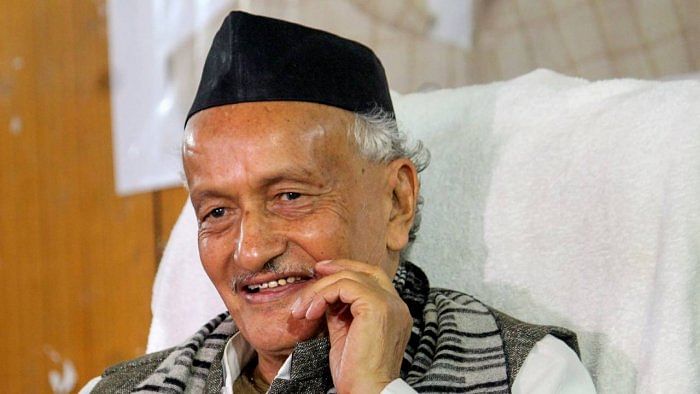
The Bombay High Court has dismissed a petition seeking legal action against former Maharashtra Governor Bhagat Singh Koshyari and BJP’s Rajya Sabha MP Dr Sudhanshu Trivedi for their comments on legendary Maratha warrior Chhatrapati Shivaji Maharaj and other icons.
The remarks prima facie do not constitute an offence under any criminal law, according to a division bench of the Bombay High Court comprising Justice Sunil Shukre and Justice Abhay Waghwase.
The petition was filed by Panvel resident Rama Katarnaware - and it was dismissed last week.
Also Read | Attacks on Savarkar will reduce people's sympathy over disqualification, Sena reminds Rahul
Koshyari’s statement on Shivaji Maharaj, Mahatma Phule and Savitribai Phule and Marathi-manoos.
“The statements cannot be seen, by any stretch of the imagination, to be disrespectful to any great person, held in high esteem by the members of the society in general and by the members of the Scheduled Castes and the Scheduled Tribes in particular,” the bench observed.
It may be recalled, Koshyari had met Prime Minister Narendra Modi and expressed his desire to go back to his home state of Uttarakhand after which President Droupadi Murmu relieved him on 23 January.
On Shivaji Maharaj, he had said: “…Earlier, when you would be asked who is your icon - Jawaharlal Nehru, Subhas Chandra Bose and Mahatma Gandhi used to be the answers. In Maharashtra, you need not look elsewhere as there are so many icons here. While Chhatrapati Shivaji Maharaj is of olden days, there are Babasaheb Ambedkar and Nitin Gadkari who are heroes of present days…”
On the Phules, he said: “…Savitribai was married off when she was ten years old. Her husband Jyotirao was 13 years old. Now imagine, what would the boy and girl have been doing after marriage? What would they have been thinking?…” .
In fact, the tiff between Koshyari and MVA soared at its peak, when he was denied permission to fly in a state government plane to Dehradun, the winter capital of Uttarakhand, and deboarded.
The court had observed that the statements primarily reflect the perception and opinion of the speaker about those figures with an intention to persuade the audience, to whom they have been expressed, to think over and act in a way which is good for the society.